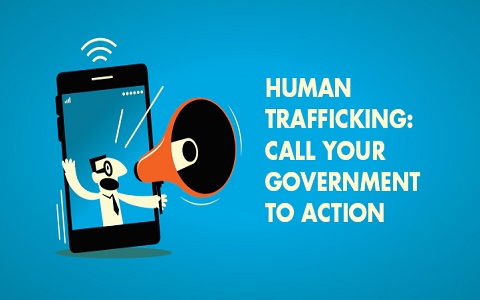

Human trafficking involves the use of force, fraud, or coercion to obtain some type of labour or commercial sex act.
Every year, millions of men, women, and children are trafficked worldwide.
This can happen in any community and victims can be of any age, race, gender, or nationality.
Traffickers might use violence, manipulation, or false promises of well-paying jobs or romantic relationships to lure victims into trafficking situations.
They also use force, fraud, or coercion to lure their victims and force them into labour or commercial sexual exploitation.
The tracffikers also look for people who are susceptible for a variety of reasons, including psychological or emotional vulnerability, economic hardship, natural disasters, or political instability.
Within Nigeria, women and girls are trafficked primarily for domestic servitude and commercial sexual exploitation.
Boys are trafficked for forced labour in street vending, agriculture, mining, stone quarries, and as domestic servants as well as child workers at the household level.
According to International Organisation for migration, eighty percent of Nigerian women and girls arriving in Italy across the Mediterranean are trafficked for sexual exploitation.
To checkmate this trend, the federal government maintained strong anti-trafficking law enforcement efforts.
Government adopted the trafficking in persons, prohibition, law enforcement and administration act in 2003 which prohibits all forms of trafficking and it introduced, for the first time, severe penalties for the crime of human trafficking.
Also, in 2015 the government passed amendments to the act, increasing the penalties for trafficking offenders, which range from a minimum of five years’, imprison and one million Naira fine, to life imprisonment.
These penalties are not sufficiently stringent, because the law allows convicted offenders to pay a fine in lieu of prison time for labour trafficking or attempted trafficking offenses.
To address these issues, the National Agency for Prohibition of Traffic in Persons and Other Related Matters, NAPTIP, was established in 2003.
It is heartwarming that states like Lagos, Oyo, Cross River and Ondo have set up a task force on human tracffiking to help reduce the act which poses a threat to the development of the nation.
The mandate given to the task force to arrest anybody caught doing this business should not be taken with kids glove but with all the seriousness it deserves.
Other states that have not done so should emulate them to nip the menace in the bud.
There is the need to look into the porous borders which serve as lucrative avenues for trafficking business.
The practice of entrusting poor children to more affluent friends or relatives may create vulnerability to the act which should be discouraged.
Parents should desist from selling their children for money and also stop the habit of sponsoring their children abroad without supervision to escape poverty which in most cases expose them to danger.
Rasheedah Makinde